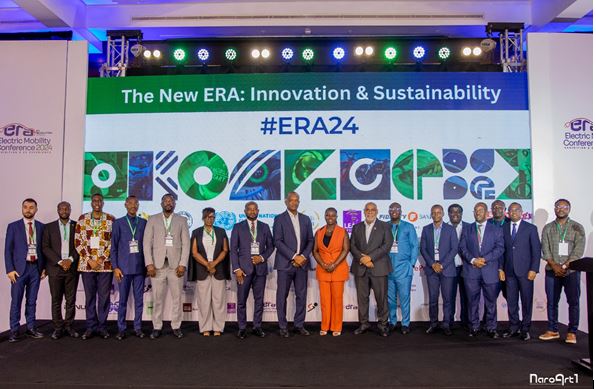By Kizito CUDJOE
The United Nations (UN) Resident Coordinator for Ghana, Charles Abani, has highlighted the country’s strides in leveraging carbon finance to strengthen climate interventions as global action on climate change deepens.
This comes in response to discussions surrounding establishing an energy bank on the African continent.
“Ghana is already making progress around some areas; for instance, carbon finance and leveraging the opportunities of carbon finance,” Abani stated. He emphasised the need to “double-down” in this area, building on successes of the Environmental Protection Agency (EPA) and Ministry of Environment Science, Technology and Innovation (MESTI).
The EPA and MESTI have been instrumental in creating a framework to leverage finance in this sector. This financial backing, according to Abani, will pave the way for Ghana to make necessary investments to expand this space.
However, Abani noted that this is a new area and the current pricing is inaccurate. Therefore, significant efforts are being directed toward advocacy to ensure the value set from carbon on this continent is properly valued.
The UN Resident Coordinator for Ghana, who was speaking in an interview on the sidelines of a 2-day inaugural ‘EV Revolution Africa E-Mobility Conference and Exhibition’ in Accra, stressed the importance of integrity in benfitting from the global carbon market.
He opined that “Ghana is growing into what is hoped will be a clean and green economy”, for which he said e-transportation offers a great opportunity while acknowledging efforts detailed in the National Energy Transition Framework (NETF).
To make this possible, he said, it will require an enabling policy environment balanced with the opportunities of bringing in foreign investments and job creation to leverage the value chain for local businesses and to harness the innovations in-country.
“Beyond the policy, we need to attract the right kind of finance and this will require public-private partnerships (PPP) – working with the private sector to really see we create those opportunities, particularly in the industrial value-chain associated with Electric Vehicles (EVs) and e-transportation.”
Additionally, he asserted that the country’s focus on Technical and Vocational Education and Training (TVET) and Science, Technology, Engineering and Mathematics (STEM) education are important elements in building the skillset for an e-transportation-related future.
Also, making the public aware and involved while ensuring an affordable cost of EVs to the public and local transportation sector, he said, requires a lot of work – which presents vast opportunities across the board.
The ERA E-Mobility Conference was organised by the Energy Quest Foundation with support from the United Nations, Ghana Ministry of Energy, Ministry of Transport and Ministry of Environment, Science, Technology & Innovation among others.
The conference was held under the theme ‘The New Era: Innovation and Sustainably’. It was dedicated to fostering dialogue among policymakers and stakeholders, emphasising the advancement of energy technology through engaging exhibitions and an Electric Vehicle Show (EV experience), featuring cutting-edge E-Mobility technologies.
A Deputy Minister of Energy, John Kobina Aban, also speaking at the event said government is investing in key power infrastructure to promote EVs’ use in the country. The efforts, he said, are to ensure that power supply is stabilised to promote widespread use of EVs countrywide.
It will be recalled that Vice President Dr. Mahamudu Bawumia announced plans to import 100 electric buses by end of the year. This forward-thinking initiative is aimed at not only reducing carbon emissions and transportation costs but also providing hope in the fight against climate change.
Electric buses are renowned for their cost-effectiveness and long-term environmental advantages, aligning with global efforts to combat climate change.
The Founder of Energy Quest Foundation, Lesley Arthur, also speaking at the ERA E-Mobility Conference noted that the platform was created to engage on e-mobility, among others, and seeks to propel the sector’s growth.
“Our quest is to ensure Africa is not left behind, this time, in this whole new initiative and industry development,” she said. Additionally, the revolution seeks to push for true development of the industry so the continent is enabled to enjoy the benefits that come with it while contributing to carbon reduction efforts.










